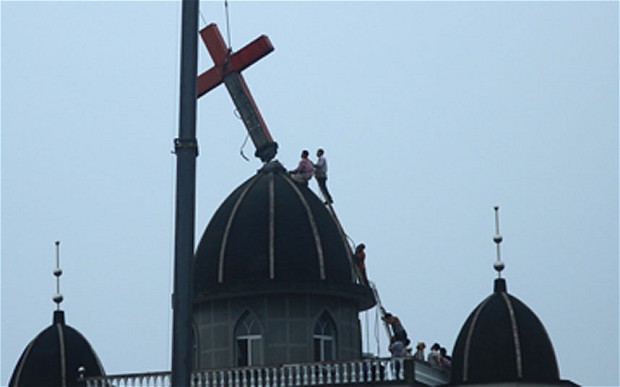
The Chinese government continues to impose restrictions of religious freedoms within the country, most recently announcing it will make every effort to nationalize Christianity.
"The construction of Chinese Christian theology should adapt to China's national condition and integrate with Chinese culture," Chinese state media quoted Wang Zuoan, director of the State Administration for Religious Affairs.
The move "will provide theological guidance for church rostrums in China and will promote the positive and correct theological thinking with a range of publications, exchanges, discussions and evangelism," reports the China Daily according to the Associated Press.
"This will encourage more believers to make contributions to the country's harmonious social progress, cultural prosperity and economic development," explained Gu Mengfei, deputy secretary-general of the Three-Self Patriotic Movement - a state-sanctioned umbrella organization for Protestant churches.
However, many fear that the push for a state-approved Christian theology is the latest in multiple attempts by the Chinese government to control believers within the country.
"Despite the fact that Christians have a lot more freedoms than before, it is still not a democracy in China, and the government is trying to control the growth of the Christian church and the growth of underground churches. Christianity has flourished over the past several years, and the government wants to control this move of faith in China," says David Curry, the president of Open Doors USA.
"The Chinese government wants to ensure that the growth of the Christian church doesn't get 'out of control.'"
Curry also warns the state's decision to nationalize Christian theology may lead to far worse restrictions on religious freedoms.
"Whenever the government gets involved in faith it's problematic and may stunt the growth in church," he said.
"The government has already tried to control the churches by forcing them to register, they may come back and try more control, shut down churches--already there has been tearing down of crosses churches when they are inconvenient for government. It could grow in intensity if these laws are taken to extreme, or if government turns against Christians."
The government has already placed numerous restrictions on China's 65 million Christians, who worship at both state-sanctioned churches and underground churches. Over the past several months, numerous Christian churches in China have been demolished and crosses removed in what the government says is a campaign aimed at illegal structures.
Pastor Joy, an underground religious leader in Wenzhou, says the recent crackdown is due to the government's fear that Christianity will soon become the strongest religion within the country.
"The number of Christians has grown to such an extent that there are now more Christians in China than party members and that scares them."
















